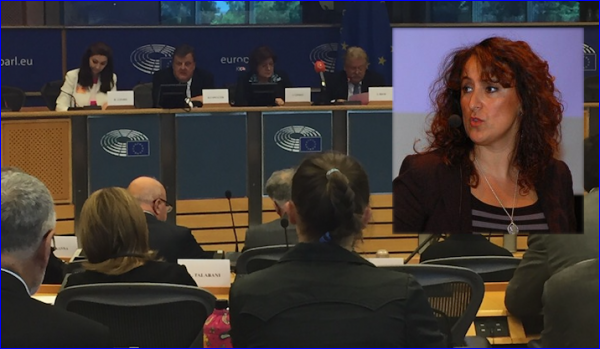


 AINA)
AINA)
The Conference, titled Post-ISIS Nineveh: The European Response, was hosted by Ms. Ana Gomes and Mr. Elmar Brok, members of the European Parliament, organized by various entities, including the Institute for International Law and Human Rights (IILHR), the Multinational Development Policy Dialogue of Konrad-Adenauer-Stiftung, No Peace Without Justice (NPWJ), the Unrepresented Nations and People's Organization (UNPO), and Minority Rights Group International (MRG).
Several important questions still remain six months into the the military operation to retake Mosul from ISIS, with the most important being the issue of the political, social and economic conditions for the sustainable return of those who lost homes and livelihoods as a result of the conflict.
Speakers included Iraqi parliamentarians and civil society activists, MEPs, EU institutions and EU member states representatives. The president of the Assyrian Confederation of Europe asked EU-officials not to overlook the role of Kurdish political groups such as the peshmerga and the KDP political party of Kurdish leader Massoud Barzani in the difficulties facing Assyrians and Yazidis in the Nineveh Plain and Sinjar. "During my visits to the region Assyrians and Yazidis have whispered carefully in my ear of the oppression they face from Kurdish groups. I'm glad that as an European living in freedom I don't have to whisper and that I can be their voice in this chamber today", she said.
The peshmerga has been accused of ethnic cleansing, arbitrary arrests and a range of other atrocities against non Kurds in reports from Amnesty, Human Rights Watch and other human rights organisations. The United States Commission on International Religious Freedom in its recent report on the Kurdish region paints a dark picture of the reality on the ground. The report states that:
Kurdish authorities, parties, and security services have been accused of attempting to 'Kurdify' more ethnically diverse parts of the disputed territories, possibly as part of KRG policy to boost retention of the disputed territories once Baghdad turns its attention to its territories now occupied by Peshmerga following battles with ISIS. Although officials deny such a policy exists, a growing number of NGOs, activists, and reports have detailed evidence of the destruction of properties and attempts to prevent IDPs returning to their homes.In addition, some minorities are precluded from aid or support, or are even targeted, if they do not support or are critical of local Kurdish parties. This may be part of a long-term strategy to entrench control of the disputed territories." The report adds that not only have displaced Yazidis been pressured to identify as Kurds but Assyrians have "faced land appropriations by Kurdish landowners.
The Assyrian Confederation of Europe is an umbrella organization based in Brussels for Assyrian national federations and associations across Europe. The Assyrian diaspora in Europe is estimated to be half a million strong.

or register to post a comment.